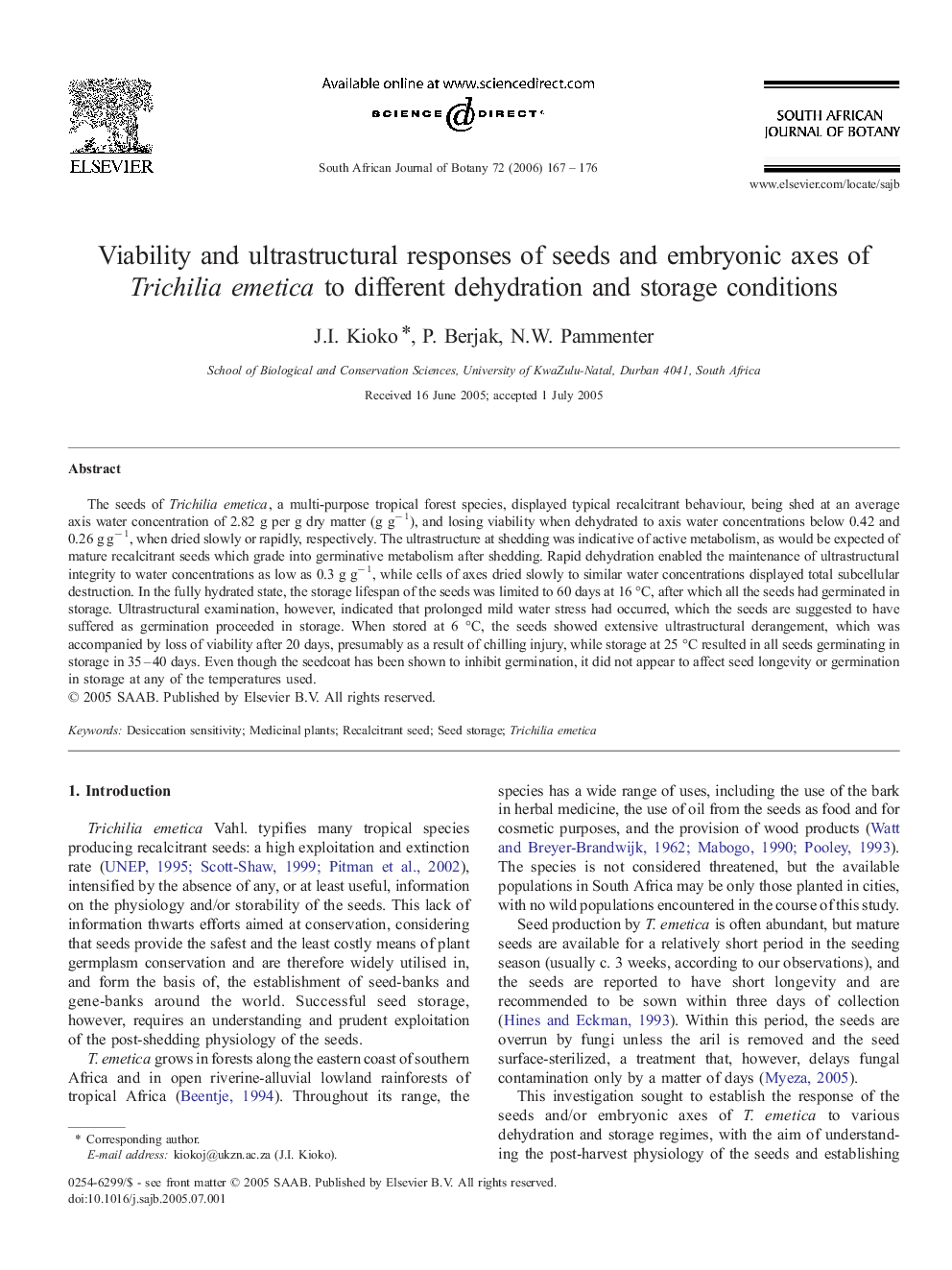| Article ID | Journal | Published Year | Pages | File Type |
|---|---|---|---|---|
| 4522040 | South African Journal of Botany | 2006 | 10 Pages |
The seeds of Trichilia emetica, a multi-purpose tropical forest species, displayed typical recalcitrant behaviour, being shed at an average axis water concentration of 2.82 g per g dry matter (g g− 1), and losing viability when dehydrated to axis water concentrations below 0.42 and 0.26 g g− 1, when dried slowly or rapidly, respectively. The ultrastructure at shedding was indicative of active metabolism, as would be expected of mature recalcitrant seeds which grade into germinative metabolism after shedding. Rapid dehydration enabled the maintenance of ultrastructural integrity to water concentrations as low as 0.3 g g− 1, while cells of axes dried slowly to similar water concentrations displayed total subcellular destruction. In the fully hydrated state, the storage lifespan of the seeds was limited to 60 days at 16 °C, after which all the seeds had germinated in storage. Ultrastructural examination, however, indicated that prolonged mild water stress had occurred, which the seeds are suggested to have suffered as germination proceeded in storage. When stored at 6 °C, the seeds showed extensive ultrastructural derangement, which was accompanied by loss of viability after 20 days, presumably as a result of chilling injury, while storage at 25 °C resulted in all seeds germinating in storage in 35–40 days. Even though the seedcoat has been shown to inhibit germination, it did not appear to affect seed longevity or germination in storage at any of the temperatures used.
